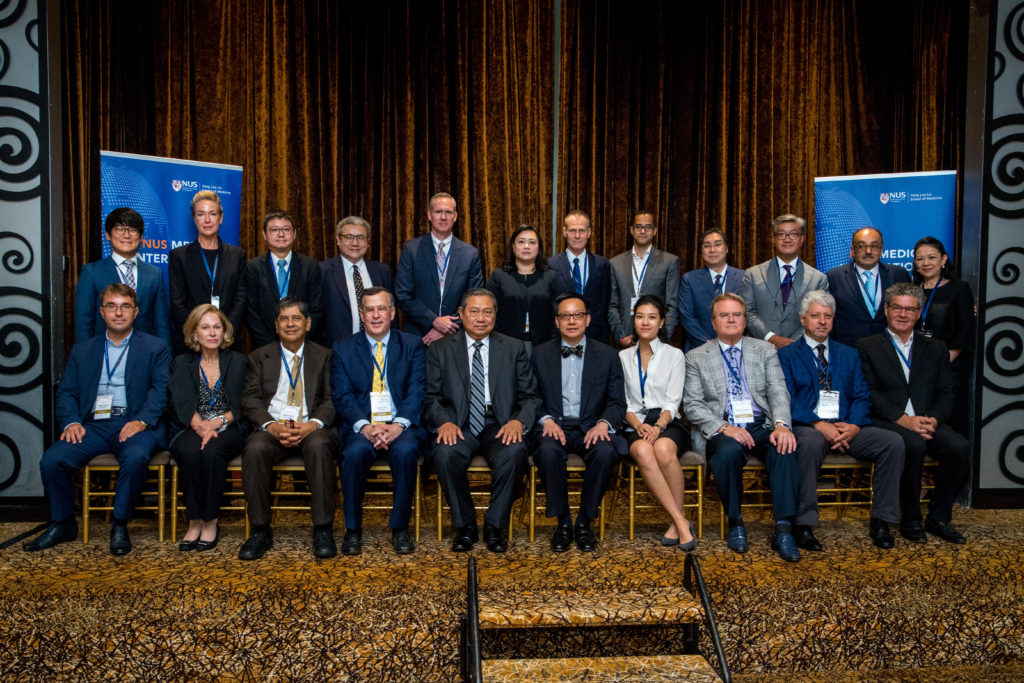2nd Annual NIC Conference Post Event Report

SINGAPORE, 4 SEPTEMBER 2017 – From 4 to 6 September, the NUS Medicine International Council hosted its 2nd annual conference themed “Human Well-Being and Security in 2030: The Critical Role of Innovation”. The conference, which was hosted in collaboration with the National University Health System and the Lee Kuan Yew School of Public Policy, focused on the world’s most pervasive healthcare issues today, with speakers sharing insights on how innovations in technology, funding, and governance are giving populations around the world a fighting chance. Over 100 local, regional, and international participants attended and reviewed the state of human well-being and security (HWS), a key concern facing all countries.
The three-day conference saw eminent public health and healthcare experts share insights on novel approaches in tackling exigent global health concerns such as epidemics, financing research of neglected tropical diseases (NTDs), and building up the medical workforce for ageing populations, among others.
Putting this year’s theme of the critical role of innovation centre stage, International Advisors to the Dialogue Professor Peter Piot, Director, London School of Hygiene & Tropical Medicine, and Dr Richard Horton, Editor-in-Chief of The Lancet, UK, noted “The world is fast approaching crisis levels in terms of global health challenges such as epidemics, ageing, the rise of chronic diseases and growing antibiotic resistance. Compounded by socio-political and economic complexities, the impetus for the international medical community to find new solutions to these problems is greater than ever. We hope that through the Raffles Dialogue, we’ll be able to bring these critical issues to the forefront, especially in Asia, and stimulate ideas on how we can collectively secure our desired future for global health.”
Elaborating on the need to continue to drive the conversation on HWS, Professor John Eu-Li Wong, Chief Executive, NUHS said, “Existing challenges have since been amplified over the last two years. The degree of political uncertainty in many parts of the developed world is greater now than in 2015. Our healthcare systems have been strained even further by the increasing intensity of nature’s forces as witnessed in Hurricane Harvey and this year’s monsoon season in South Asia. We see even greater shifts of people, fleeing armed conflicts or seeking better employment opportunities, attacks on our information systems by cyber-criminals with the power to cripple entire healthcare systems, and distortion of information on an unprecedented scale.
